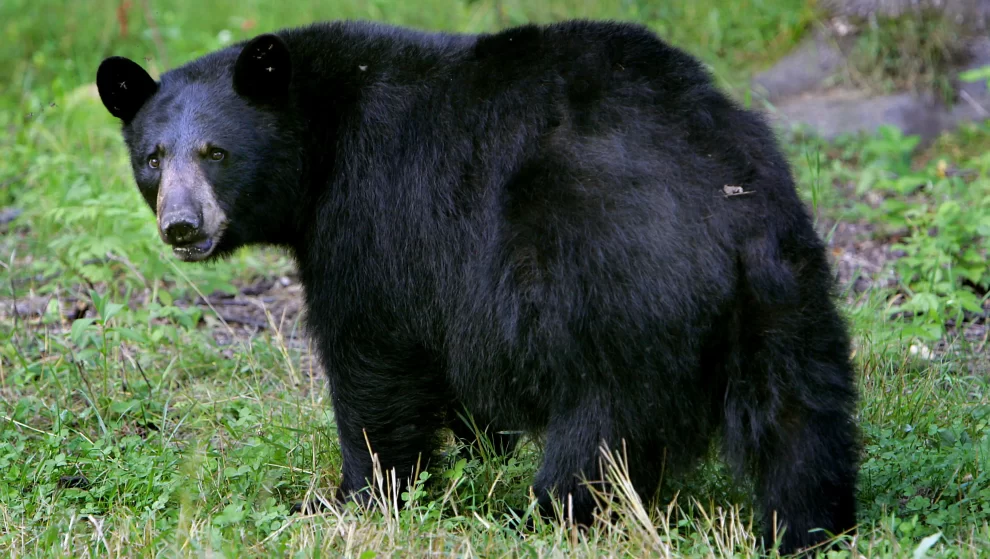West Kelowna and Okanagan Falls are the deadliest cities to be a black bear in the Okanagan.
A dozen black bears were killed by the BC Conservation Officer Service in each community in 2022, making up a small part of the 500 that were put down provincially, according to a new report from the Fur-Bearers.
That 500 number is actually down 81, or 14 per cent, from 2021, according to information compiled from nearly 400 communities across the province and ranked by the number of black bears killed.
According to the statistics compiled by the Fur-Bearers for 2022, the deadliest communities for black bears in B.C. are:
- Prince George: 32
- Nelson: 21
- Castlegar: 14
- Okanagan Falls: 12
- Revelstoke: 12
- West Kelowna: 12
- Nanaimo: 10
- Port Alberni: 10
In Kelowna, nine black bears were killed. Penticton saw three euthanized while Vernon (six), Kamloops (six) and Salmon Arm (two) all also saw black bears put down by BCCOS.
For a more detailed look at the dataset click here.
“Local governments, businesses, and residents in these communities need to address the significant number of black bears being killed,” says Aaron Hofman, spokesperson for the Fur-Bearers. “Wildlife is typically seen as a provincial responsibility, but provincial officers cannot respond to every potential attractant issue like unsecured garbage, or every incident of wildlife feeding. Municipalities need to take leadership and implement measures to manage attractants including garbage, bird feeders, fruit trees, and wildlife feeding. These efforts will help protect people and wildlife.”
A West Kelowna woman recently started a petition in an effort to try and save bears lives in the future.
The petition started by Dawn Urban now has more than 13,200 signatures after a mother bear and one of her cubs were euthanized on June 11, 2023, “due to repeated and preventable food-conditioned behaviour that created a minimal fear of people,” stated an email from BCCOS.
The Fur-Bearers are encouraging residents of these communities to contact their local elected officials about the number of black bears being killed.
“Black bears are often killed when they begin accessing garbage and spend time in human-dense areas seeking unnatural food sources from unsecured attractants,” says Hofman, with the Fur-Bearers. “By identifying communities where bears are killed with greater frequency, questions about systemic issues can be asked, and the killing can end.”
Source: Castanet



























